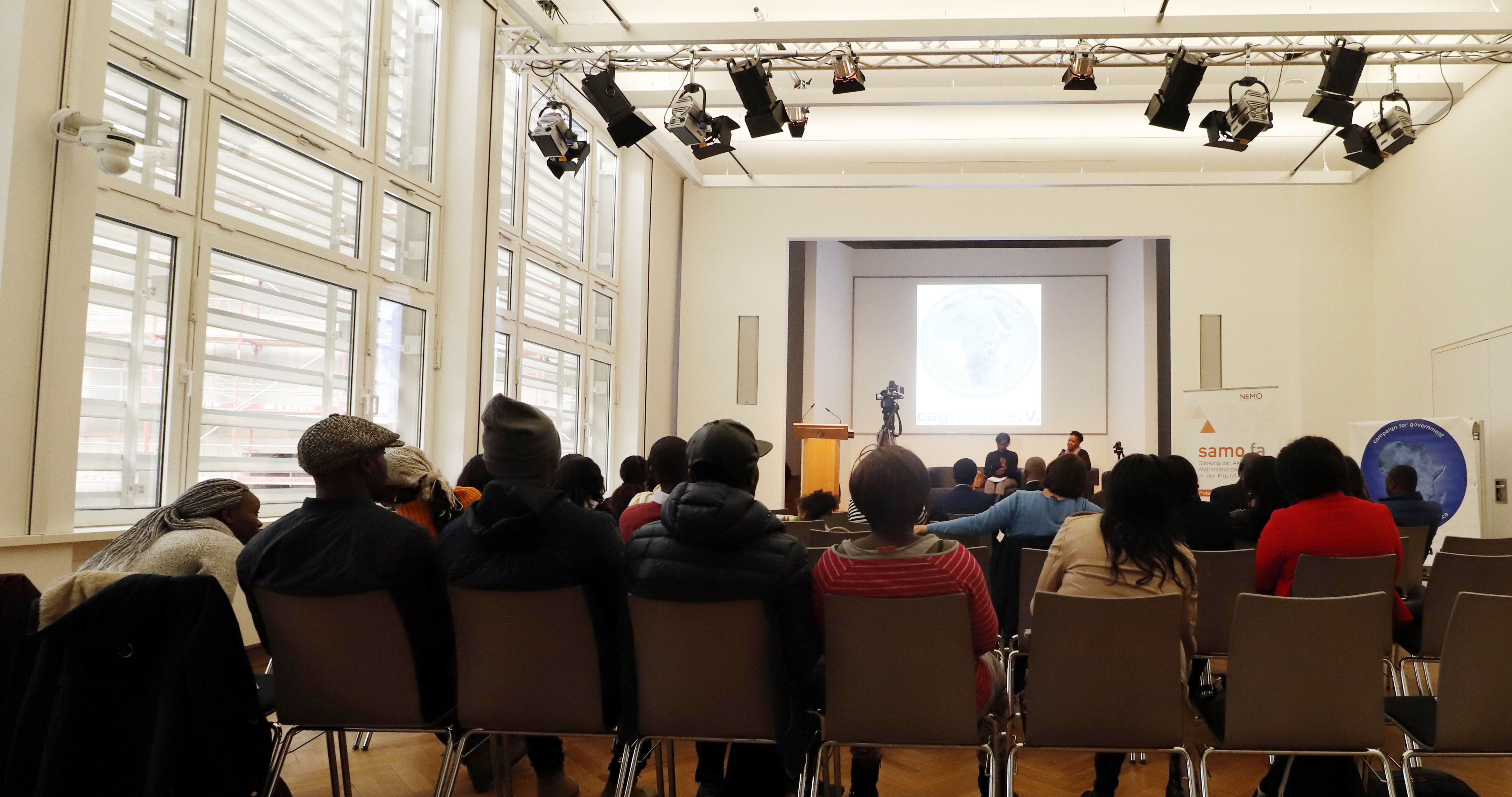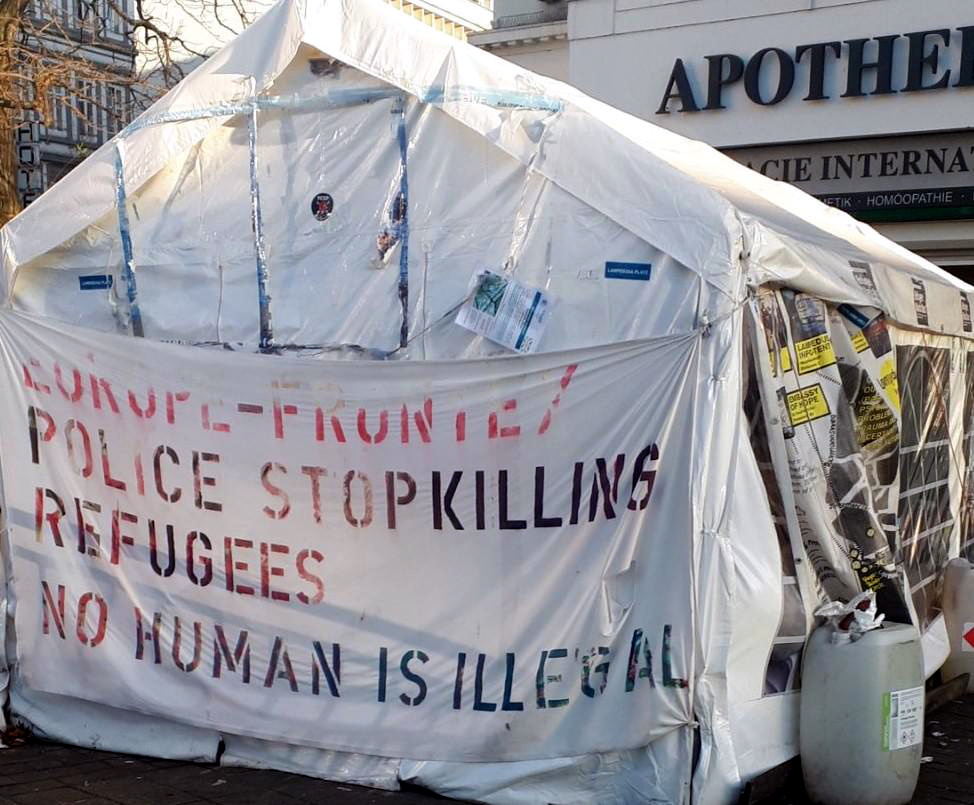Every day, young Africans out of sheer desperation endanger their lives in their quest to cross the Sahara Desert and Mediterranean Sea for a better life in Europe. More than 20,000 have drowned in the past seven years while many more are even believed by experts to have perished in the desert. The main factor pushing young people to leave their homelands is lack of opportunities, the result of bad governance and political leadership failure in African countries. An organisation in Germany has now formally petitioned the International Criminal Court in The Hague to try African governments for their culpability in the tragedy.
An African refugee organisation, based in German city of Bad Belzig, cagintua e.V., has formally reported the African Union (AU) and some African governments to the International Criminal Court (ICC) in The Hague for possible investigation over the criminal negligence of their duty to their people.
The argument of cagintua is that the AU and some of the African governments are partners in crime to those responsible for the kidnapping, raping, torturing, illegal detention, forcible organ removal, slavery and murder of African refugees during their journey to Europe. The group holds that the victims are being systematically forced out of their homelands in Africa by the failure of the African governments to cater for their people.

The organisation went further; that some of these governments even intentionally put some policies in place to trigger the mass exodus of young people whom they fear could start demanding good governance.
The decision of cagintua to pray ICC to investigate the roles of AU and some African government began on 29 May 2010 at a workshop called DEMVOTE, organised by the group, to study the German system of democracy.
According to the petition filed at the ICC, the organisation pointed out, among others, that:
- Refugees and asylum-seekers from Africa face a lot of abuses on their way to Europe. Some of them do not survive the many agonies faced during the journey. Some drown in the sea, some die in the desert, some are sexually abused and some are sold off as slaves and some are wilfully killed. Many live with depression and fear of deportation in their final countries of destination.
- The migrants’ experiences during their journey cause some of them psychological illness. Some of the traumatised refugees commit suicide.
- It is the responsibility of every government to provide protection for their citizens. Failure to do simply means they are not living up to their responsibility.
- Some African countries even decide to put dangerous policies in place just to force some of their citizens out of their homelands into modern slavery. This is because by refusing to provide jobs, social amenities, security, human rights, social justice and basic welfare at home, young people are systematically forced to emigrate.
- Some of the African governments are conscious of their responsibilities but wilfully refuse to discharge them. They have the resources to make their countries better places to live in but simply refused to do so “because they just want to create slaves for other countries in the Middle East and in Europe. And because they want to reduce the population through indirect killing (genocide!)”
“We have asked the International Criminal Court to investigate the actions of these African governments. Your country may be among. We need evidences!” cagintua said.
“Some of the dangerous policies of these governments have forced many people to seek for protection and better life in Europe risking their lives through the desert and the Mediterranean Sea. And in the process they are exposed to rape, kidnapping, illegal and involuntary body organ removal, slavery and death. All these constitute to crimes against humanity,” the organisation said.
“The ICC needs more evidences to enable it start an investigation of crimes against humanity against those African governments and their collaborators,” cagintua explained.

“Unless we provide evidences, there may be no grounds for ICC to start any investigations,” the group said.
Time to gather Evidences is now!
To convince the ICC in The Hague to begin investigations, the petitioner has to provide the court with more evidences. This is contained in the letter, dated 08.08.2019, written by the Office of the Prosecutor to Cagintua e.V. [seen by The African Courier]. The ICC stated in its letter that they welcomed the complainant to submit more evidences.
The organisation is now calling on “all refugees who are victims of human traffickers, victims of Kidnappers, victims of sexual abuse and rape” who had suffered on their way from Africa to Europe to present their evidences to it. The call of cagintua also goes to the refugees who were sold in Libya as slaves including those that have evidences of people they knew who died and those that had their organs illegally removed to present their evidences.

Possible scenarios if the ICC accepts or refuses to investigate
Asked which of the many African countries are likely to be named for investigation if the ICC agrees to do so, Obiri Mokini, the president of Cagintua e.V. replies: “we are still in the middle of gathering evidences to be presented to the ICC. For some countries we have collected enough evidences, for others we are still working on it. Naming those countries now may trigger them to destroy the evidences and we don‘t want that to happen. But 12 countries in Africa are off our list including those that are not signatories to the ICC”.
Sola Jolaoso
Do you want to provide evidences? Do you know anyone who is willing to provide evidences? Please contact: icc-au@cagintua.com
 THE AFRICAN COURIER. Reporting Africa and its Diaspora! The African Courier is an international magazine published in Germany to report on Africa and the Diaspora African experience. The first issue of the bimonthly magazine appeared on the newsstands on 15 February 1998. The African Courier is a communication forum for European-African political, economic and cultural exchanges, and a voice for Africa in Europe.
THE AFRICAN COURIER. Reporting Africa and its Diaspora! The African Courier is an international magazine published in Germany to report on Africa and the Diaspora African experience. The first issue of the bimonthly magazine appeared on the newsstands on 15 February 1998. The African Courier is a communication forum for European-African political, economic and cultural exchanges, and a voice for Africa in Europe.



































